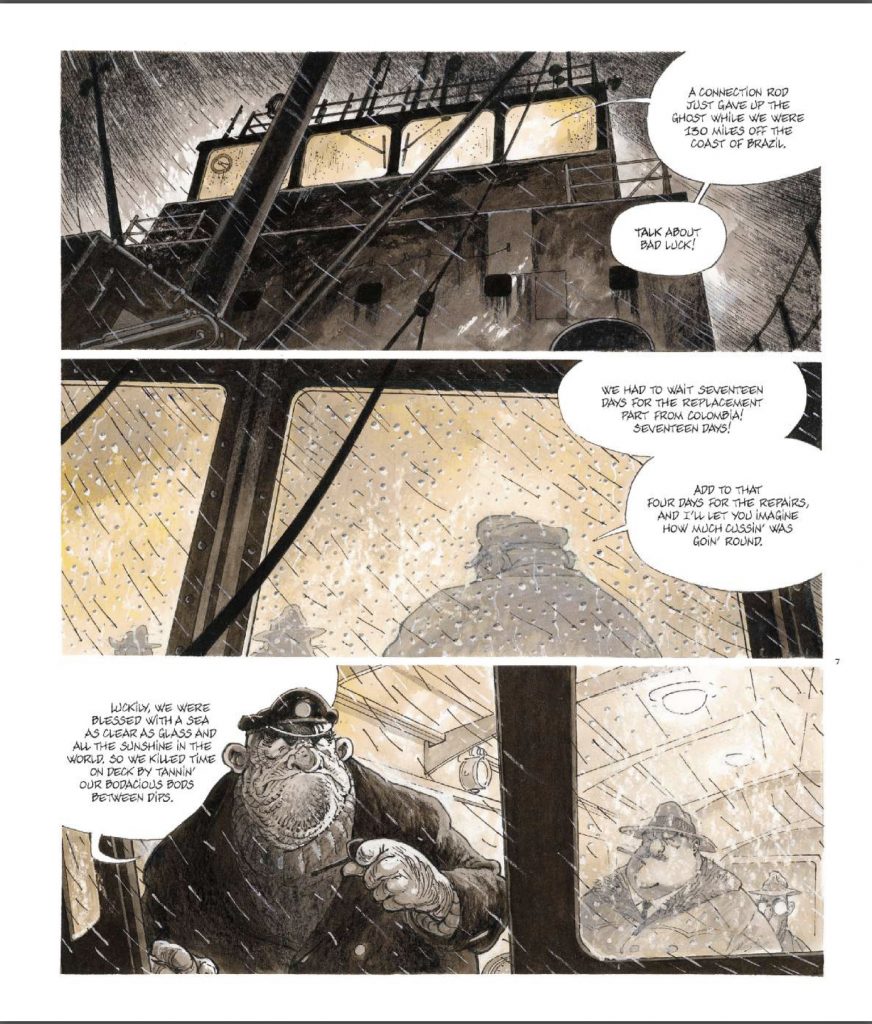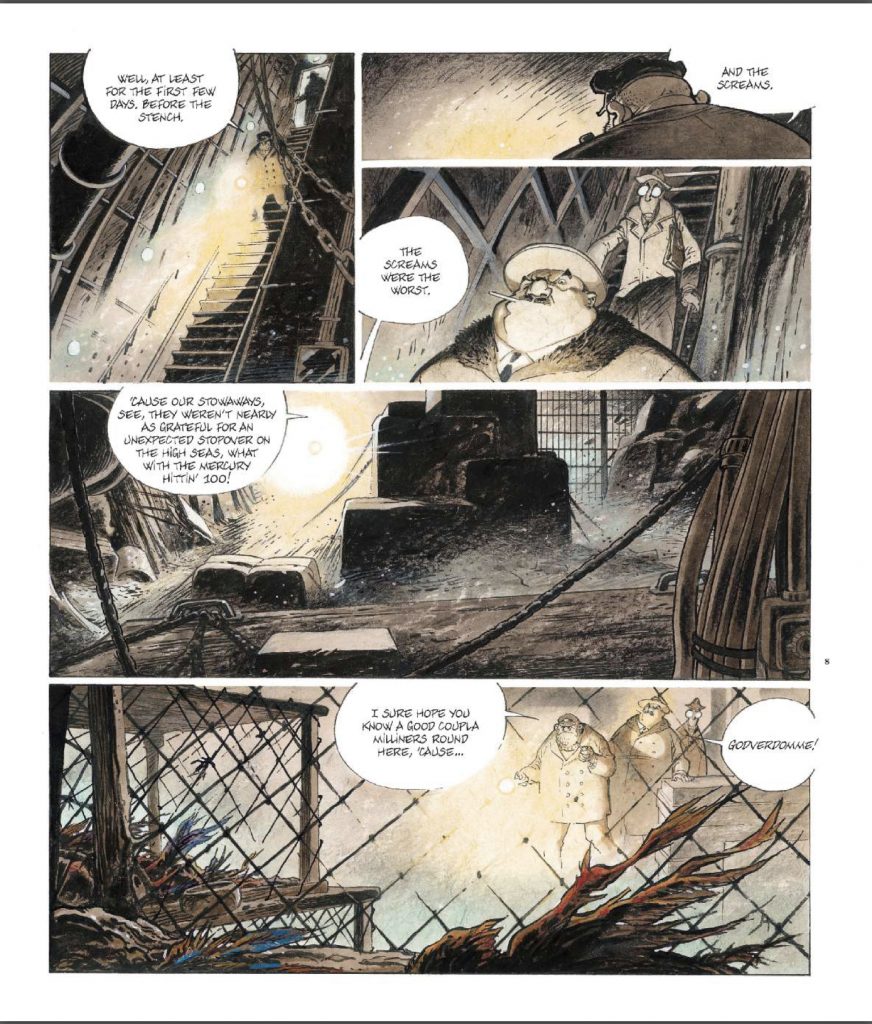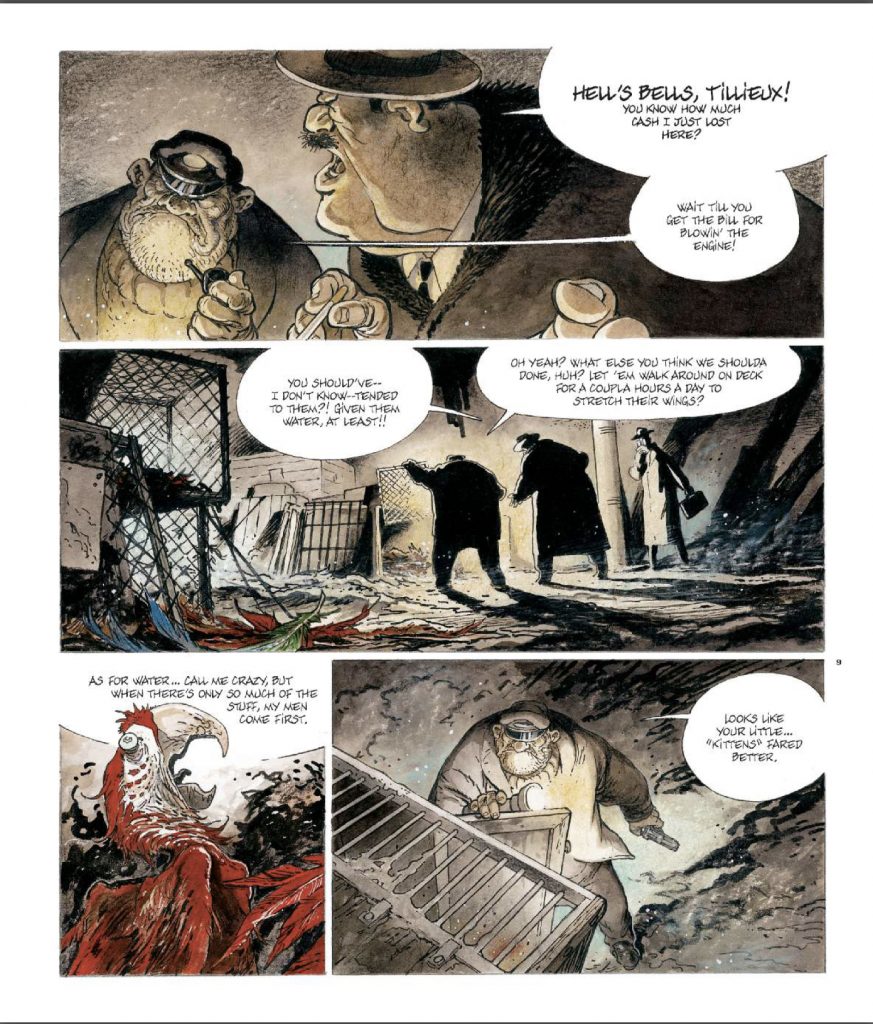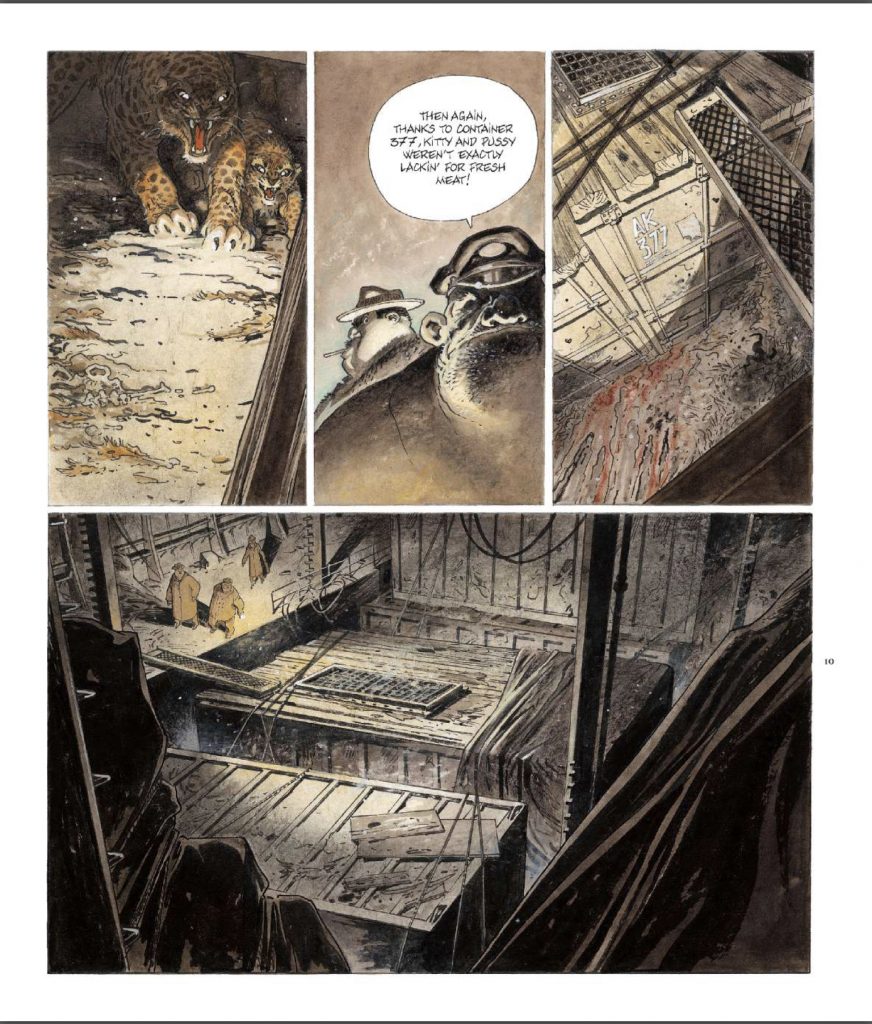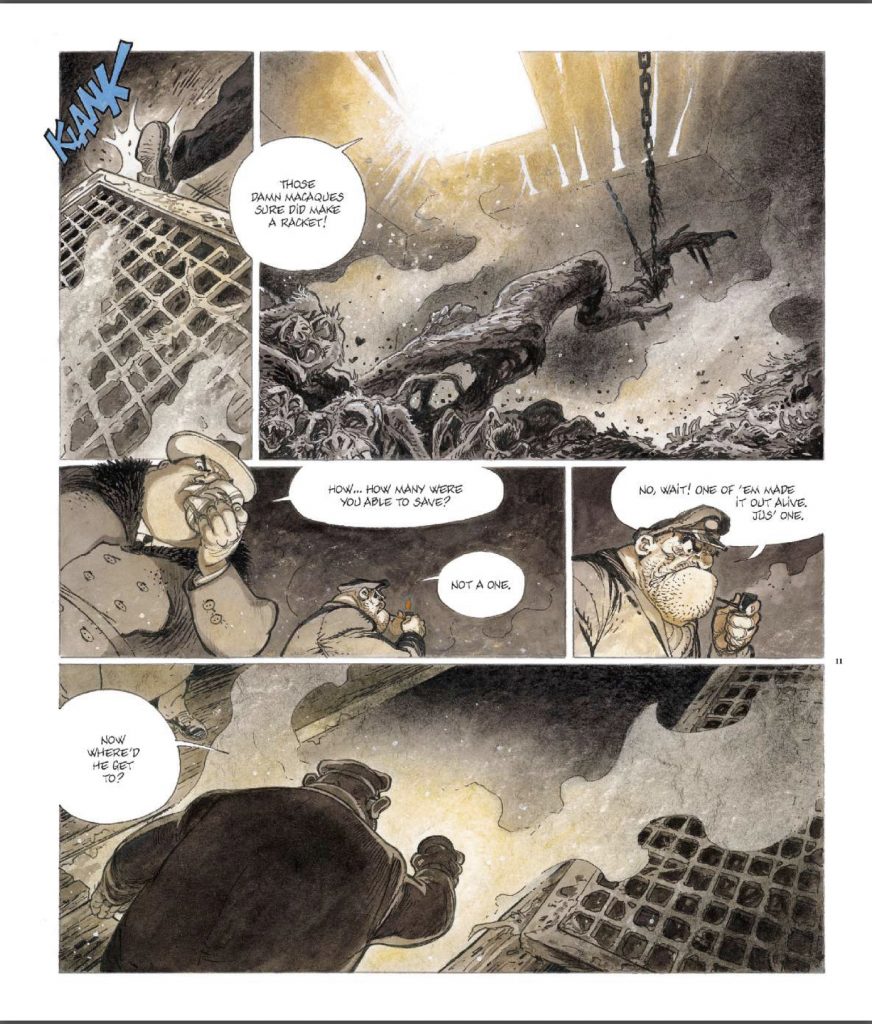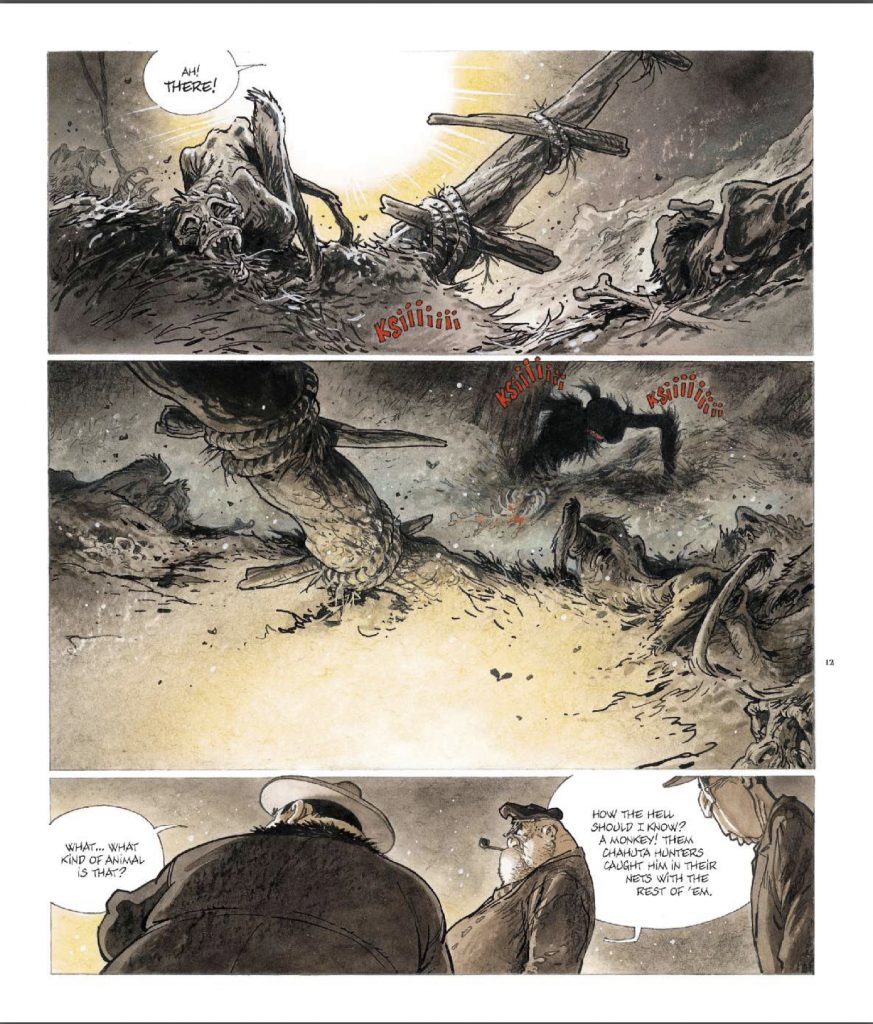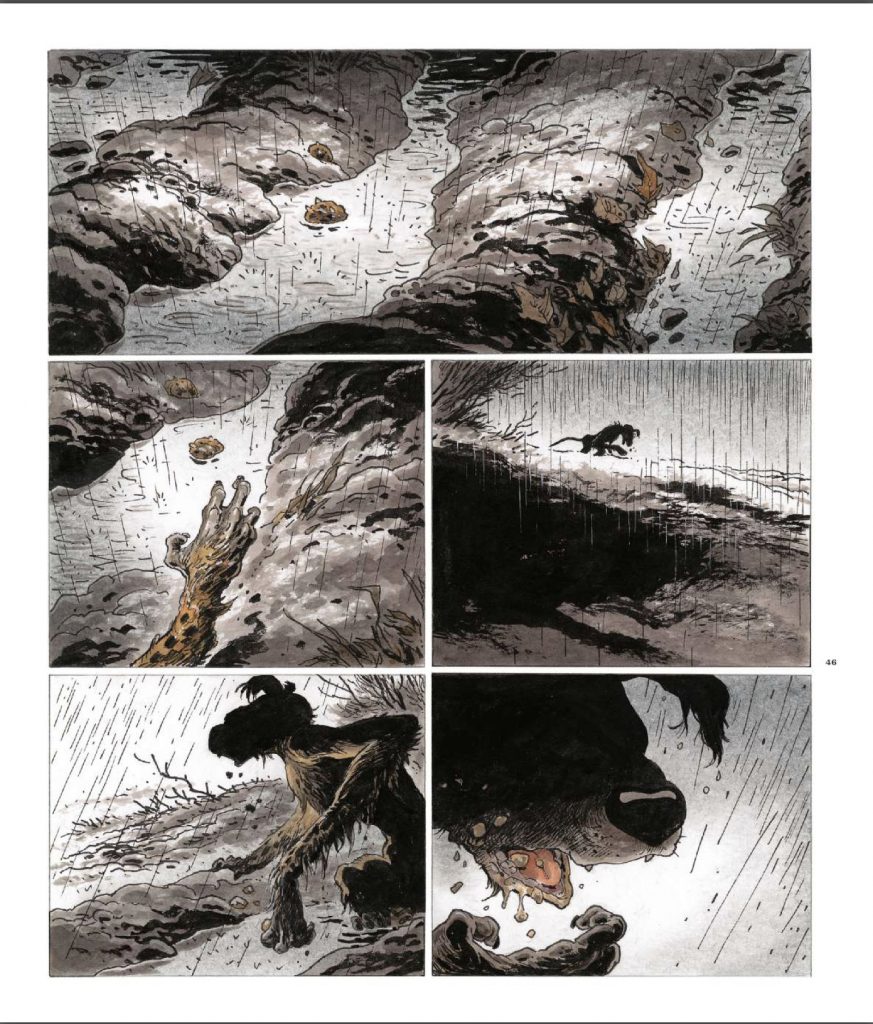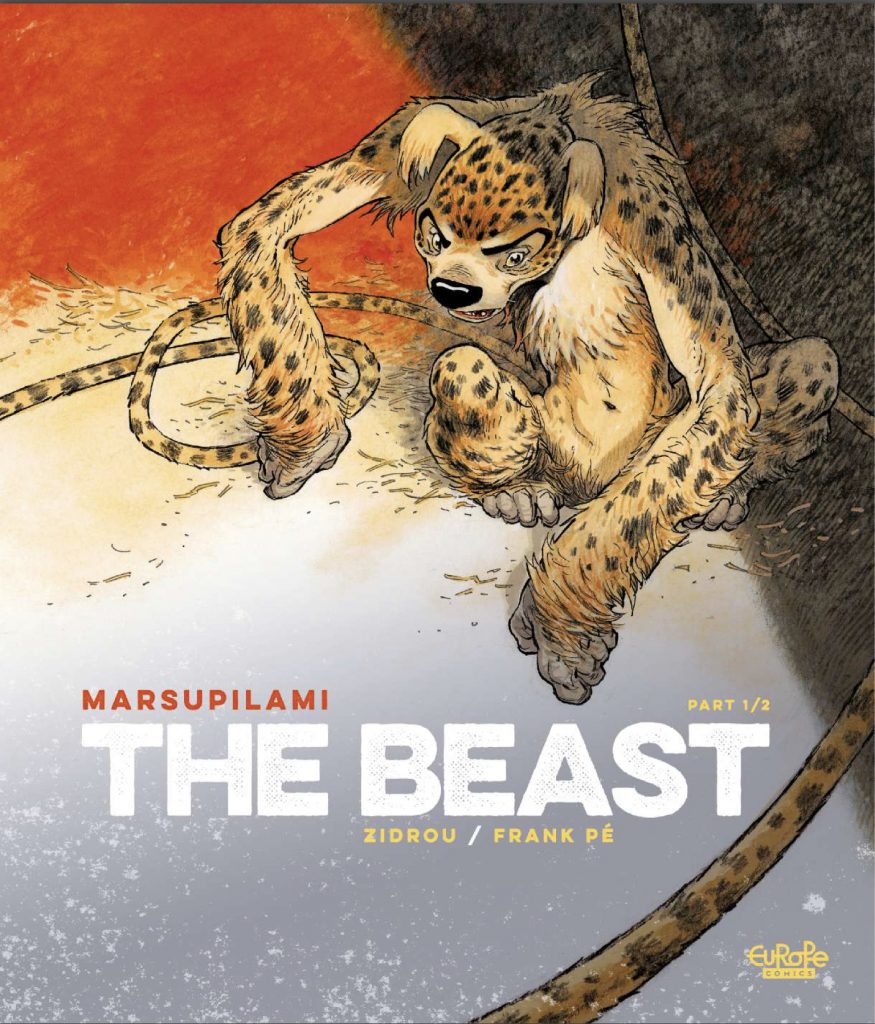
Belgium, 1955. A mysterious animal is caught in the jungles of South America and transported to Europe on a cargo ship, where it ends up starving and half-dead on the outskirts of Brussels. François, a young boy with a fondness for taking in strays, finds it and brings it home to his mother and his menagerie—his best and only friends. As the son of a departed German soldier, François is the favorite target of every bully in school. Nobody can identify the strange creature with the voracious appetite and the stupendously long tail, and François figures his new pet is perfect for show-and-tell… But with a wild beast and a small classroom, things quickly get out of hand. Will this spell the end for François’s new animal friend? The real story of the legendary Marsupilami!
- Marsupilami: The Beast (part 1 of 2)
- Europe Comics
- Written by Zidrou
- Illustrated by Frank Pe’
As 1955 was coming to a close in Brussels, Belgium, there was a lot going on in the life of young Francois Van Den Kroot. At a time in his life when standing out isn’t always preferred, he’s bright, lively, & generous to a fault. For that matter, his mother could be said to share those traits, generosity in particular as she deals with Francois’ habit of bringing home stray animals. To date, they’re playing host to a deaf owl, a three-legged dog (named Tripod, of course), an alcoholic horse, and the only daytime bat known to man. And that’s just the tip of the zoological iceberg.
The turning point is when Francois brings home a… no one really knows what it is that he’s decided to foster this time around, as it carries both simian & feline traits. What’s plain to see is that the kind of chaos involved in the new addition to an already complicated life makes the perfect foil for a story that rolls along from one page to the next. Another obvious fact is that Marsupilami: the Beast is just one more piece of evidence to show that there are comic creators out there operating on a different level from most.
Where do I even start? Okay, let’s take the easy road… Marsupilami has as much whimsy collected in its pages as any cartoon feature. Just taking count of the animals Francois and his mother care for suggested classics like Charlotte’s Web & The Jungle Book. Sure, none of these talk but each and every one shows all of the personality of any anthropomorphized Disney creation, from the turkey who thinks he’s a rooster to the mated pair of beavers forever using the bathtub as a place to… um… endlessly display their boundless affection. That creative attention to detail doesn’t stop with the animals in the story, as Zidrou has taken the time to invest a bit of life into every character found inside these pages. While some may carry just enough weight to fill their assigned roles, there are many others who have whole lives happening before, during, and presumably after the book is closed.

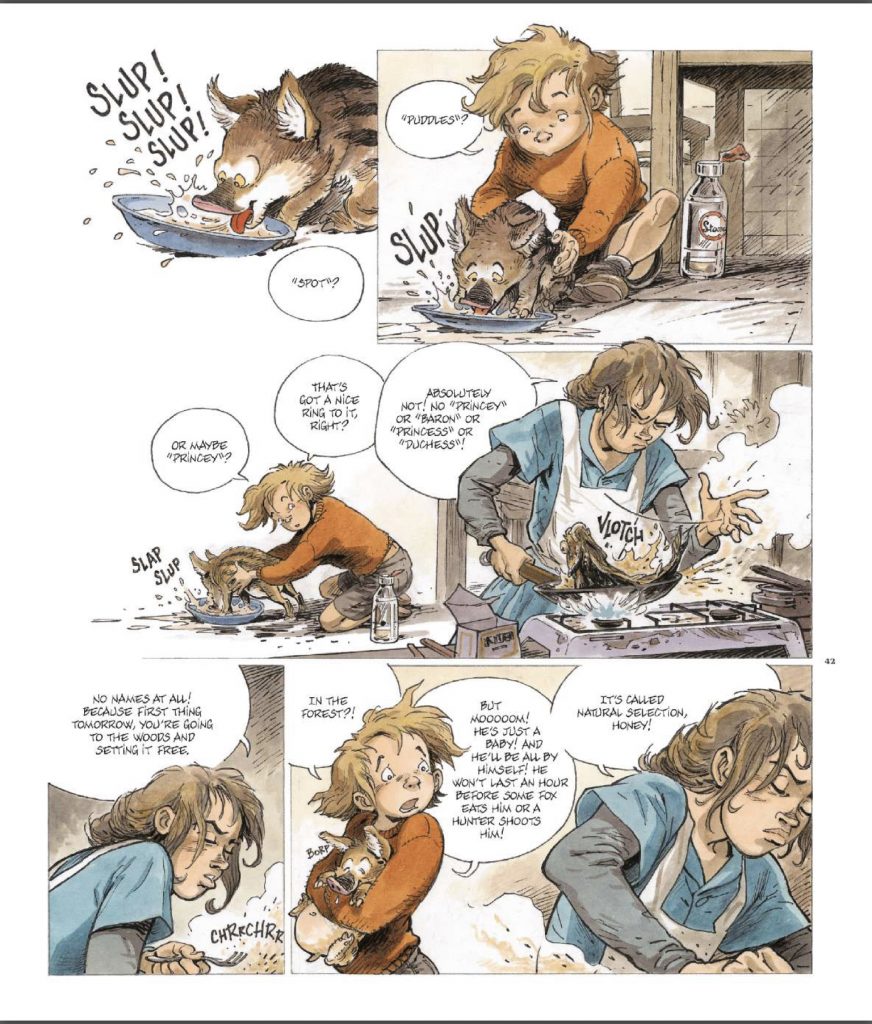
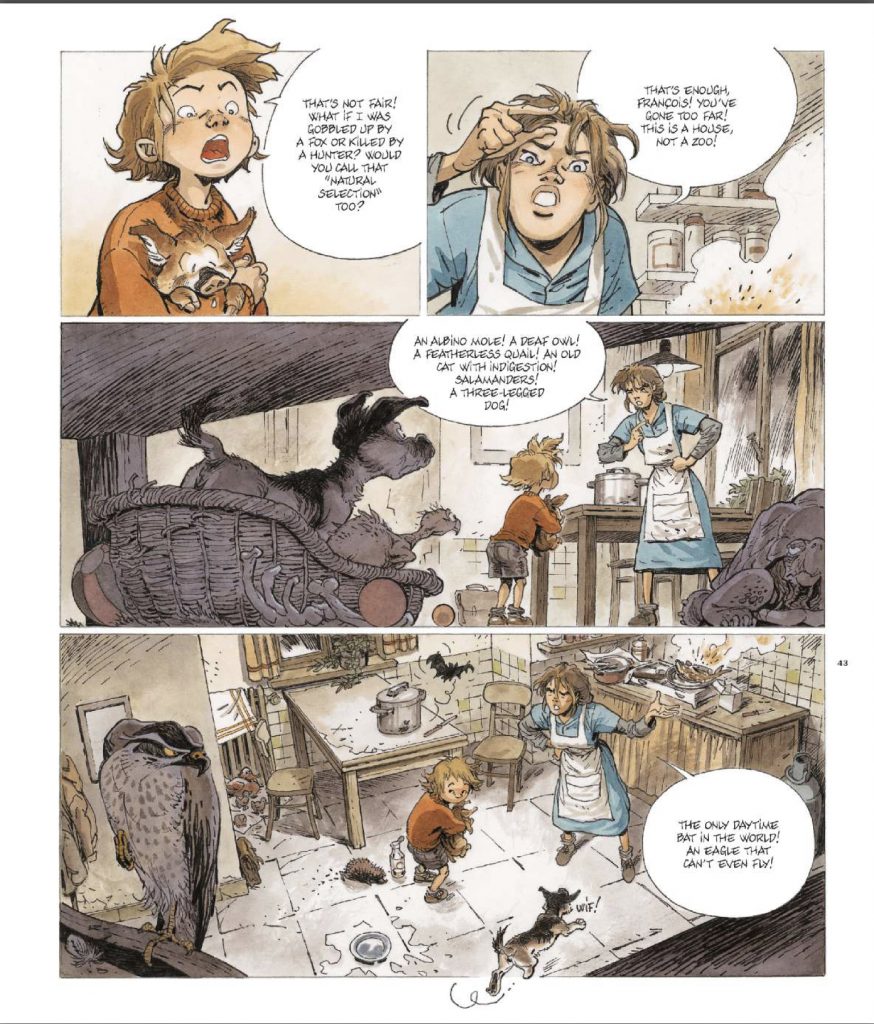
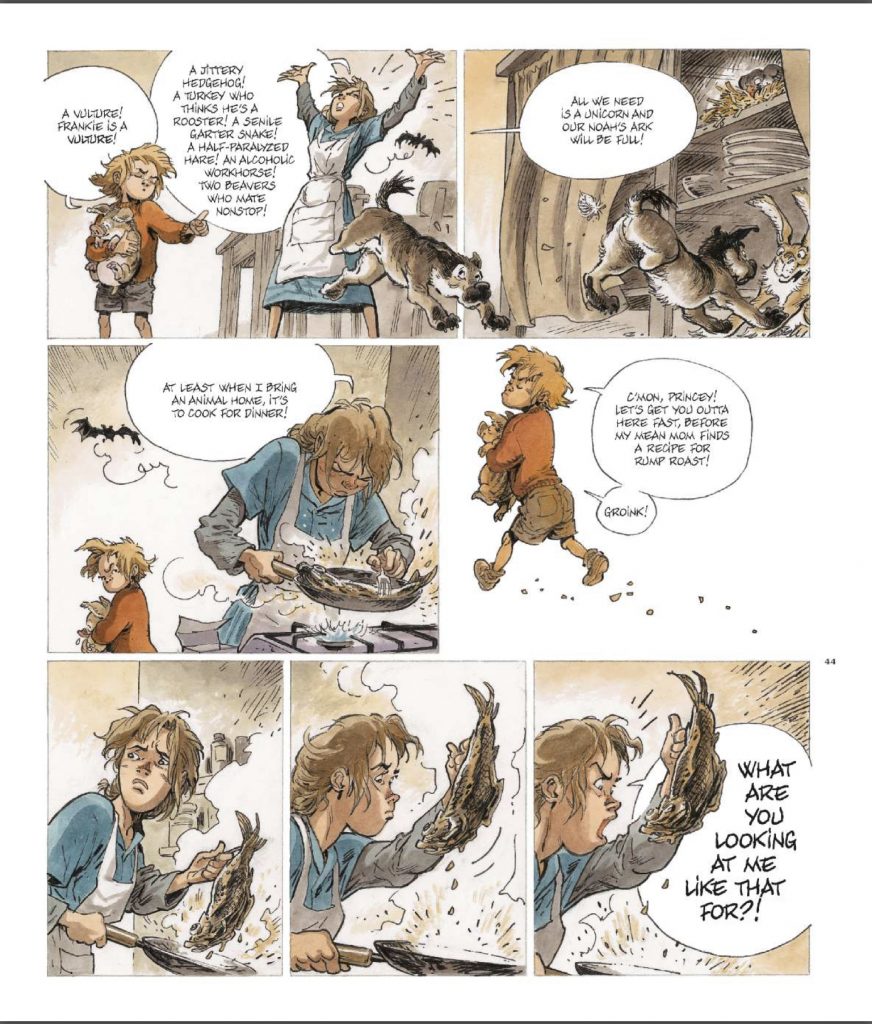
Which brings me to the more complicated part of my review. Anyone with knowledge of history might recognize that life in Belgium of 1955 could be very complicated. Much of Europe at that time was still recovering from World War II, and places where the German occupation was more entrenched found that bouncing back to status quo wasn’t a simple thing. It’s important to remember that not every German soldier was devoted to the Third Reich. Many were young men who had been drafted into service and sent to foreign lands, where they lived among the people of occupied countries. As very often happens when people are brought together by circumstance, connections are made and lives are lived.
So it was with Francois’ mom, who met a German soldier named Franz, fell in love, and was then left alone to raise a son when the war ended. If anyone has seen the HBO series Band of Brothers, or is familiar with the aftermath of the German occupation in Europe following WWII, there’s a clue to the chaos left behind in the young mother’s life. Early on, we’re shown that she still carries the stigma of being “on the side of the occupation” and having developed “a real close relationship with some of ‘em”. Francois hasn’t had things any easier as classmates bully him, calling him names like “Van Den Kraut”, and in one scene shave his head with a pair of shears. With all of these themes lurking in his story, Zidrou is still able to avoid dragging his book into darker territory. The darker elements are there for anyone who might be curious enough to delve into them, but they don’t overshadow the story. It’s a balancing act that was handled beautifully in the framework of Zidrou’s narrative.
Fully in keeping with the in-depth and layered writing, the artwork in Marsupilami: the Beast has enough going on in its panels to satisfy the most demanding eye. There’s more visual information on a single page of Frank Pe’s work than I’ve seen played out in whole books. If Waldo himself had popped out and waved at me, I wouldn’t have thought the red & white shirt wearing bespectacled lurker at all out of place. “Busy” doesn’t even begin to cover it, but the detailed panels aren’t at all over-crowded. Pe’ manages it all through careful arrangements and an eye toward the flow of the action as his illustrations move from one shot to the next. Frank Pe’ also has a fantastic eye for the characters he’s drawing. Part of the charm of this book is in the style of its designs. Not too cartoony in its exaggerated visuals, but definitely leaning away from realistic, it’s a blend of the two that comes out looking like caricature art. That light-hearted appeal definitely helps to pull a more casual reader up when some of the darker story elements loom.
I’ve covered a few of the books from Europe Comics, and I’m repeatedly amazed at the level of artistry & storytelling that goes into them. Sure, they’ve published some superhero books, but the majority of the work they put out is more mature than much of what we might see from the major publishers here in the U.S. That’s not a dig, because I do love me some chaos and mayhem in comics, but it does shine a light on the different sensibilities between here and there. Much like the manga coming from Japan, European comics don’t seem to have any shame whatsoever in putting out content for all ages.
Final Score: 12/13
